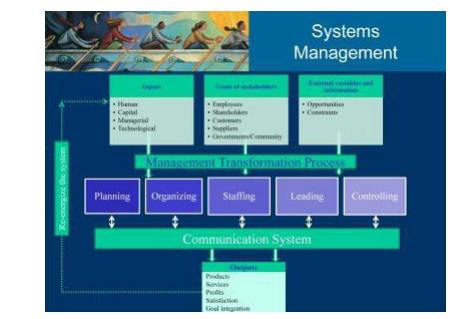Chapter: Principles of Management
Trends and Challenges of Management in Global Scenario
Trends and Challenges of Management in Global
Scenario
The
management functions are planning and decision making. Organizing, leading, and
controlling are just as relevant to international managers as to domestic
managers. International managers need to have a clear view of where they want
their firm to be in the future; they have to organize to implement their plans:
they have to motivate those who work lot them; and they have to develop
appropriate control mechanisms.
1 Planning and Decision Making
Planning
and Decision Making in a Global Scenario To effectively plan and make decisions
in a global economy, managers must have a broad based understanding of both
environmental issues and competitive issues. They need to understand local
market conditions and technological factor that will affect their operations.
At the corporate level, executives need a great deal of information to function
effectively. Which markets are growing? Which markets are shrinking? Which are
our domestic and foreign competitors doing in each market? They must also make
a variety of strategic decisions about their organizations.

2 Organizing
Organizing in
a Global Scenario
Managers in international
businesses must also attend to a variety of organizing
issues. For example, General Electric has operations scattered around the
globe. The firm has made the decision to give local managers a great deal of
responsibility for how they run their business. In contrast, many Japanese
firms give managers of their foreign operations relatively little
responsibility. As a result, those managers must frequently travel back to
Japan to present problems or get decisions approved. Managers in an
international business must address the basic issues of organization structure
and design, managing change, and dealing with human resources.
3 Leading
Leading
in a Global Scenario We noted earlier some of the cultural factors that affect
international organizations. Individual managers must be prepared to deal with
these and other factors as they interact people from different cultural
backgrounds .Supervising a group of five managers, each of whom is from a
different state in the United States, is likely to be much simpler than
supervising a group of five managers, each of whom is from a different culture.
Managers must understand how cultural factors affect individuals. How motivational
processes vary across cultures, how the role of leadership changes in different
cultures, how communication varies across cultures, and how interpersonal and
group processes depend on cultural background.
4 Controlling
Controlling
in a Global Scenario Finally, managers in international organizations must also
be concerned with control. Distances, time zone differences, and cultural
factors also play a role in control. For example, in some cultures, close
supervision is seen as being appropriate, whereas in other cultures, it is not
like wise, executives in the United States and Japan may find it difficult to
communicate vital information to one another because of the time zone
differences. Basic control issues for the international manager revolve around
operations management productivity, quality, technology and information
systems.
Related Topics